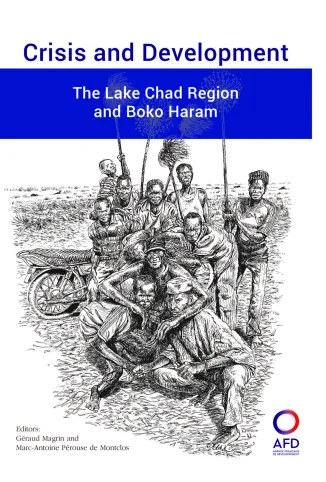Share the page
Crisis and Development. The Lake Chad Region and Boko Haram
Published on

From 2009, insecurity linked to the insurgency of the Boko Haram group and its repression spreads from the heart of Nigerian Borno to the north-east of the country and then to the border areas of neighboring countries, Cameroon, Niger and Chad. The crisis has progressively affected the entire region of Lake Chad, one of the great cross-border areas of Sahelian Africa, at the crossroads of Africa savannahs and desert, of West Africa and Central Africa. This study is the first to address the Boko Haram crisis from a perspective transcending the political and linguistic boundaries between English-speaking Nigeria and the three French- speaking countries bordering Lake Chad. Carried out by a multidisciplinary team of seventeen French, British, Cameroonian, Nigerien, Nigerian and Chadian researchers, it considers the Lake Chad region as a system. Its components and their environmental, economic and political interactions are grasped from a diachronic perspective before, during and after the peak of violence. The analysis leads to a prospective reflection considering the next 20 years. Based on the observation that the crisis has shaken the relationship system that made the Lake Chad region resilient, this reference study aims to shed light on the crucial choices that will define its future development trajectory.
Useful Information
-
Authors
-
Géraud Magrin, Marc-Antoine Pérouse de Montclos, Emmanuel Chauvin, Jacques Lemoalle, Christine Raimond, Charline Rangé, Sylvain Aoudou Doua, Zakinet Dangbet, Goudoum Pierre Don-Donné, Ahmat Hessana, Adam Higazi, Hadiza Kiari Fougou, Abdourahmani Mahamadou, Kyari Mohamed, Ahmadu Abubakar Tafida, Abdullahi Liman Tukur, Félix Watang Zieba
-
Coordinators
-
Marc-Antoine Pérouse de Montclos
-
Number of pages
-
274
-
ISSN
-
2492-8313
-
Collection
-
Special Edition
